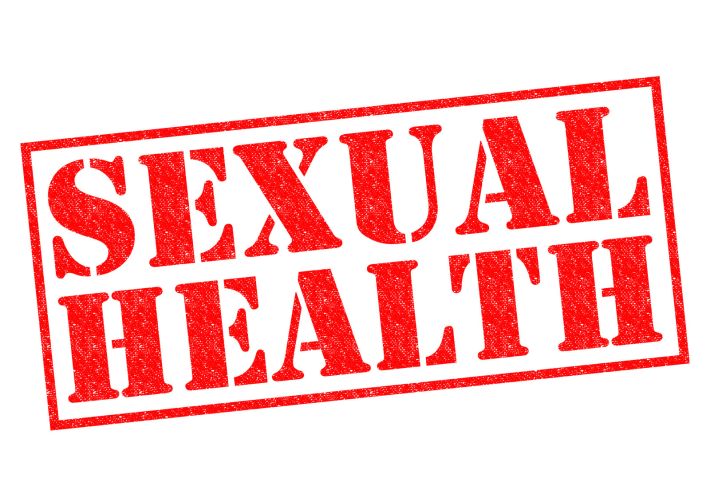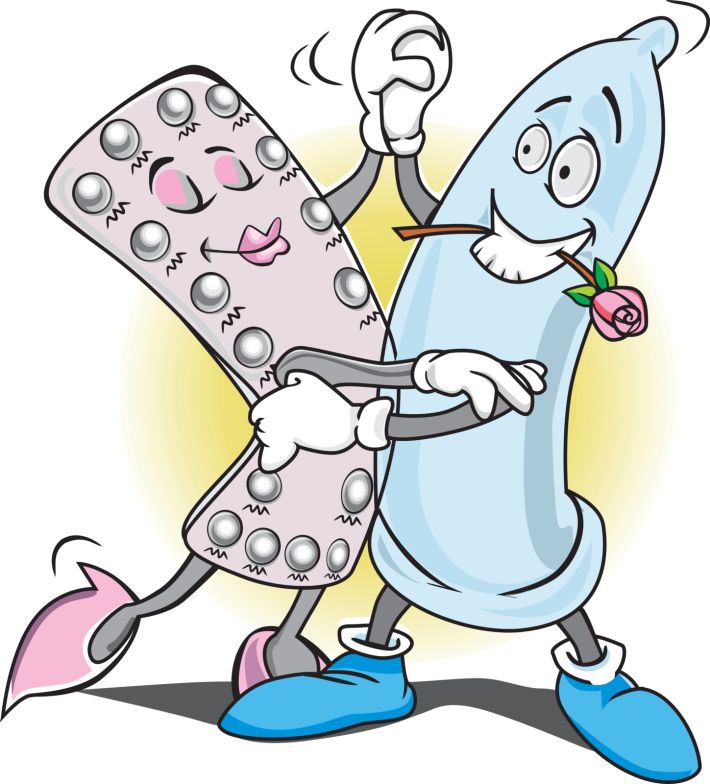- in Men's Health by tony
Men’s Sexual Health

Men’s Sexual Health
Regarding male sexual health, many men may feel uncomfortable discussing the topic or seeking help. However, addressing concerns or issues is vital to maintaining a healthy and satisfying sex life.
Understanding male sexual health and taking proactive steps to maintain it is crucial for a fulfilling sex life. In this article, we will explore common issues that men may face and provide valuable information and tips to support optimal male sexual health. Whether you are experiencing difficulties or want to enhance your sexual well-being, this article aims to provide valuable insights and guidance.
More...
Summary
Male Sexual Health: Taking Steps Towards a Happier and Healthier You
Maintaining good sexual health is an essential aspect of overall well-being for men. It not only affects physical intimacy but also has an impact on mental and emotional health. If you're looking to prioritize your sexual health, here are a few key steps to consider:
1. Open Communication:
Effective communication with your partner is crucial for a healthy sexual relationship. Discuss your desires, concerns, and any potential issues openly and honestly. This will help foster trust and understanding, and ultimately lead to a more fulfilling sexual experience for both partners.
2. Regular Exercise:
Engaging in regular physical activity not only improves cardiovascular health but also boosts testosterone levels, enhances circulation, and increases energy levels. Incorporate moderate-intensity exercises such as jogging, swimming, or weightlifting into your routine to reap the benefits.
3. Eat a Balanced Diet:
Maintaining a healthy diet is vital for your overall well-being, including sexual health. Include foods rich in essential nutrients like fruits, vegetables, lean proteins, and whole grains. Avoid excessive consumption of processed foods, sugar, and alcohol, as they can negatively impact libido and sexual performance.
4. Manage stress:
High levels of stress can take a toll on your sexual health, leading to decreased libido and erectile dysfunction—practice stress management techniques such as meditation, deep breathing exercises, or engaging in enjoyable activities. Taking time for self-care and relaxation can significantly improve your sexual well-being.
5. Get Enough Sleep:
Adequate rest is essential for optimal sexual health. Lack of sleep can lower testosterone levels, affect mood, and decrease sexual desire. Aim for 7-9 hours of quality sleep each night to ensure your body is well-rested and ready for intimate encounters.
6. Regular Check-ups:
Schedule regular visits with your healthcare provider to monitor and address potential health concerns that may impact your sexual health. Discuss any difficulties you may be experiencing, such as erectile dysfunction or low libido, to explore possible solutions or treatments.
7. Maintain a Healthy Weight:
Obesity and excess body weight can harm sexual health. Strive for a healthy weight by maintaining a balanced diet and engaging in regular physical activity. Losing excess weight can improve hormone levels, enhance blood flow, and increase overall sexual satisfaction.
8. Avoid Smoking and Limit Alcohol Consumption:
Smoking damages blood vessels, leading to decreased blood flow to the penis and erectile dysfunction. Similarly, excessive alcohol consumption can impair sexual performance and lower libido. Quit smoking, or seek professional help to quit, and consume alcohol in moderation, if at all.
Remember, sexual health is a multifaceted aspect of overall well-being. Taking care of your body, promoting open communication, and promptly addressing concerns will lead to a healthier sexual life. Don't hesitate to seek professional help if you experience persistent issues or have specific questions about your sexual health.
Taking proactive steps towards male sexual health is an investment in your overall quality of life.
What is male sexual health?

Regarding men's sexual health, there are several factors to consider. One important aspect is maintaining a healthy lifestyle, which includes regular exercise and a balanced diet.
Engaging in physical activity not only improves cardiovascular health but also enhances blood flow to the genital area, promoting better sexual function. It is also crucial for men to manage stress levels, as increased stress can negatively impact their libido and overall sexual performance.
Moreover, paying attention to mental well-being is equally significant. Addressing any underlying psychological issues, such as depression or anxiety, can significantly improve sexual satisfaction.
Open communication with partners about desires, preferences, and concerns fosters a supportive and fulfilling sexual relationship.
Seeking professional help from healthcare providers specializing in men's sexual health is always advisable for those experiencing persistent difficulties or concerns.
By prioritizing these aspects of men's sexual health, individuals can not only enhance their sexual experiences but also contribute to their overall well-being and happiness.
What are common issues affecting male sexual health?

When it comes to common issues affecting male sexual health, several factors can come into play. One of the most prevalent issues is erectile dysfunction, which is the inability to achieve or maintain an erection firm enough for sexual intercourse.
Various factors, such as underlying medical conditions like diabetes or heart disease, and psychological factors like stress or anxiety can cause this condition.
Premature ejaculation is another common issue that men may face, where they ejaculate sooner than desired during sexual activity. This can lead to frustration and dissatisfaction for the individual and their partner.
Other issues that can affect male sexual health include low libido (lack of sexual desire), difficulty achieving orgasm, and problems with arousal.
It's important for men experiencing these issues to seek professional help to address and resolve them effectively.
How can lifestyle choices impact male sexual health?

Lifestyle choices play a crucial role in impacting male sexual health. Unhealthy habits such as excessive alcohol consumption, smoking, and drug use can harm sexual function.
These substances can disrupt hormonal balance, impair blood flow, and damage nerves, leading to erectile dysfunction or decreased libido. On the other hand, adopting a healthy lifestyle can significantly improve sexual health.
Regular exercise not only boosts physical fitness but also enhances circulation and promotes the release of endorphins, which contributes to better sexual function.
A balanced diet rich in fruits, vegetables, whole grains, and lean proteins provides essential nutrients that support overall well-being, including sexual health.
Also, managing stress levels through meditation or therapy can alleviate anxiety and improve sexual performance. Getting enough sleep is also vital, as it helps regulate hormone production and promotes optimal functioning of the body's systems.
By making positive lifestyle choices, men can significantly enhance their sexual health and enjoy more fulfilling intimate experiences with their partners.
What are effective treatments for erectile dysfunction?

Male sexual disorders can have a significant impact on a man's overall well-being and quality of life. Erectile dysfunction (ED), for example, is a common disorder that affects the ability to achieve and maintain an erection.
Various factors, including physical conditions like diabetes, cardiovascular disease, or hormonal imbalances, can cause it.
These disorders can be distressing for men and their partners, but there are treatment options available.
Effective treatments for erectile dysfunction can vary depending on the underlying cause and individual circumstances. One of the most common treatment options is medication, such as oral phosphodiesterase type 5 inhibitors (PDE5 inhibitors) like Viagra, Cialis, or Levitra.
These medications increase blood flow to the penis, helping achieve and maintain an erection. However, it's important to note that these medications may not be suitable for everyone and should only be taken under the guidance of a healthcare professional.
In addition to medication, other treatment approaches can effectively address erectile dysfunction. For example, counselling or therapy can help individuals explore psychological factors contributing to their condition and develop coping strategies.
Lifestyle modifications such as quitting smoking, reducing alcohol consumption, and managing stress levels may also improve erectile function.
Psychological factors such as stress, anxiety, or depression can also contribute to ED. Premature ejaculation is another sexual disorder characterized by the inability to delay ejaculation during sexual activity.
Similarly, it can have both physical and psychological causes. Other disorders include low libido (reduced sex drive) and delayed ejaculation (difficulty reaching orgasm).
Cognitive behavioural therapy (CBT) can help address psychological factors contributing to sexual disorders. Seeking support from healthcare professionals who specialize in men's sexual health is crucial in diagnosing and treating these disorders effectively.
Open communication with partners about concerns or difficulties is also important in maintaining healthy relationships and seeking appropriate solutions together.
In some cases, more advanced treatments may be recommended.
These can include devices like vacuum erection devices (VEDs), which use suction to draw blood into the penis, or penile implants that surgically insert inflatable or semi-rigid rods into the penis to create an erection.
Ultimately, it's vital for individuals experiencing erectile dysfunction to consult with a healthcare professional who specializes in men's sexual health to determine the most appropriate treatment option for their specific needs.
In conclusion, male sexual health encompasses various aspects such as reproductive health, contraception, and the management of sexual disorders.
By adopting positive lifestyle choices, maintaining reproductive health through regular check-ups and healthy habits, and actively participating in family planning through contraception methods suited to individual circumstances, men can enhance their overall well-being and satisfaction in their sexual experiences.
Additionally, seeking professional help for any sexual disorders that may arise can greatly improve one's quality of life and relationships. Individuals need to prioritise their health and seek the appropriate guidance to ensure a fulfilling and healthy sex life.
Are there natural remedies or supplements that can improve male sexual health?
A wide range of natural remedies and supplements claim to improve male sexual health. However, it's essential to approach these cautiously, as their effectiveness and safety can vary. Some natural remedies that may have potential benefits include:
1. Ginseng: This herb has been used for centuries in traditional medicine and is believed to enhance sexual function by improving blood flow and reducing stress.
2. L-arginine: An amino acid that helps produce nitric oxide, which is key in achieving and maintaining erections.
3. Tribulus terrestris: A plant extract used in traditional medicine to boost libido and improve sexual performance.
4. Zinc: This mineral is essential for testosterone production, a hormone crucial for male sexual health.
While these natural remedies may show promise, it's essential to consult a healthcare professional before trying them, especially if you have any underlying medical conditions or are taking other medications. Additionally, it's crucial to remember that the effectiveness of these natural remedies is not scientifically proven, and they should not replace medical advice or prescribed treatments.
What are the risk factors for developing prostate problems?

Several risk factors can contribute to the development of prostate problems. Age is a significant factor, as the risk increases with advancing age.
Men over 50 are more likely to experience prostate issues than younger men.
Family history also plays a role, as having a close relative with prostate problems increases the likelihood of developing similar problems.
Ethnicity can also be a factor, with African-American men having a higher risk than other ethnic groups.
Lifestyle choices such as poor diet, lack of exercise, and smoking can increase the risk of prostate problems.
Obesity has also been linked to an increased likelihood of developing prostate issues.
Finally, certain medical conditions like diabetes and heart disease have been associated with an elevated risk for prostate problems.
Men must be aware of these risk factors and take proactive steps towards maintaining their prostate health, including regular check-ups with their healthcare provider and adopting a healthy lifestyle.
What are some common treatments for male sexual health issues?

Making positive lifestyle choices such as adopting a healthy diet, exercising regularly, quitting smoking, moderating alcohol consumption, and effectively managing stress can greatly improve male sexual health. It's important for individuals to prioritize their overall well-being in order to enhance their sexual experiences.
Reproductive Health
Reproductive health encompasses various aspects of male sexual health, including fertility, hormonal balance, and overall well-being. It is essential to understand the factors affecting reproductive health to maintain optimal function and address any potential issues.
One key factor in male sexual health is zinc, a mineral crucial to testosterone production. Testosterone is a hormone vital for sexual health and function. Natural remedies for enhancing male sexual health often include zinc supplementation.
However, consulting with a healthcare professional before trying new treatments is essential, especially if underlying medical conditions or medications are being taken.
Moreover, it's crucial to remember that the effectiveness of these natural remedies has not been scientifically proven, and they should not replace proper medical advice or prescribed treatments.
Taking proactive steps towards maintaining reproductive health, such as regular check-ups with healthcare providers and adopting a healthy lifestyle, can greatly contribute to overall well-being and sexual satisfaction.
Male Contraception

Male contraception is an important aspect of male sexual health that allows men to take an active role in family planning.
While the majority of contraceptive methods are designed for women, there are some options available for men as well.
One commonly used method is condoms, which not only provide protection against sexually transmitted infections but also prevent pregnancy by acting as a barrier method.
Another option is vasectomy, a surgical procedure that involves cutting or blocking the tubes that carry sperm from the testicles to the urethra. This procedure is highly effective and considered a permanent form of contraception.
However, it's important to note that vasectomy should be approached as a long-term decision, since it may not be reversible.
Researchers are also exploring other potential male contraceptive methods, such as hormonal injections and oral medications, but these options are still in development and not widely available.
It's essential for men to have open conversations with their partners and healthcare providers about contraception options and make informed decisions based on their individual circumstances and preferences.
By taking an active role in contraception, men can contribute to reproductive health and shared responsibility in family planning.
Venereal Disease

Venereal diseases, also known as sexually transmitted infections (STIs), are a significant concern for male sexual health. These diseases are transmitted through sexual contact and can have severe consequences if left untreated.
Some common venereal diseases include chlamydia, gonorrhoea, syphilis, and human papillomavirus (HPV). Men must practice safe sex by using condoms consistently and getting tested regularly for STIs.
Early detection and treatment of these infections are crucial in preventing the spread of the disease and minimising potential complications.
Additionally, vaccination against HPV is available and recommended for both males and females to protect against certain types of cancer caused by this virus.
Men should also be aware of the symptoms associated with venereal diseases, such as unusual discharge, sores or bumps on the genitals, pain during urination, or itching.
If symptoms arise or there is a suspicion of exposure to an STI, seeking medical attention promptly for diagnosis and appropriate treatment is essential.
By preventing and addressing venereal diseases, men can safeguard their sexual health and promote overall well-being.
Source: https://www.healthline.com/health/mens-health/male-sexual-health
The Male Libido
The male libido, or sex drive, is an essential aspect of male sexual health.
It refers to a man's desire for sexual activity and plays a significant role in intimate relationships. Various factors can influence the male libido, including hormone levels, physical health, psychological factors, and overall well-being.
It is not uncommon for men to experience fluctuations in their libido at different stages of life. Factors such as stress, fatigue, relationship issues, and certain medications can also affect the male sex drive.
Understanding and addressing these underlying factors are crucial in maintaining a healthy libido. Engaging in regular exercise, managing stress levels, getting enough sleep, maintaining a healthy diet, and communicating openly with sexual partners about desires and concerns can all contribute to a positive and satisfying sexual experience.
If concerns about the male libido persist or significantly impact one's quality of life, seeking guidance from healthcare professionals who specialise in men's sexual health can provide valuable support and treatment options tailored to individual needs.
(Source: Healthline)
In conclusion: Sexual health is an integral part of overall well-being, and any problems in this area can significantly impact a man's self-confidence and relationships. Various factors affecting male sexual health, including physical, psychological, and lifestyle, have been debated.
Ethos: We believe every man deserves to feel confident and empowered in their sexual health. We strive to provide the resources and support needed for a healthy and fulfilling sexual life.




